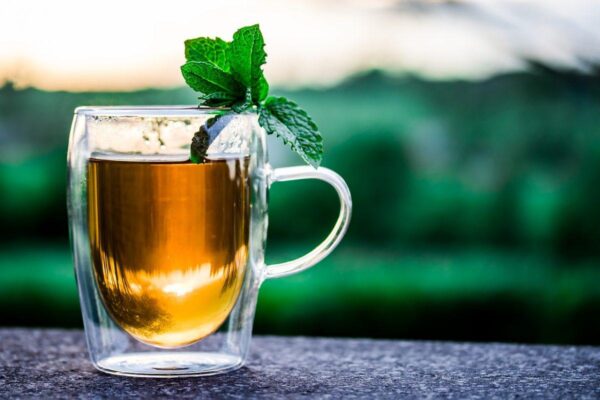Hey, all my health-conscious readers! Gas and bloating are issues which we all face and it is crucial that we know how we can deal with these problems. The most effective remedies are, of course, the natural remedies! says “Wellhealthorganic.com:5-Herbal-Teas-You-Can-Consume-To-Get-Relief-From-Bloating-And-Gas” Many people use natural remedies to alleviate these symptoms, such as herbal teas.
Also Read: wellhealthorganic.com:diet-for-excellent-skin-care-oil-is-an-essential-ingredient
Herbal teas are used for centuries to promote overall health and wellness; some are particularly effective in treating digestive issues. In this blog we’ll discuss the causes of gas and how it can be connected to constipation. We also talk about the various herbal teas and how to make every one of them, as talked about in “Wellhealthorganic.com:5-Herbal-Teas-You-Can-Consume-To-Get-Relief-From-Bloating-And-Gas.”
What is bloating according to “Wellhealthorganic.com:5-Herbal-Teas-You-Can-Consume-To-Get-Relief-From-Bloating-And-Gas”?
A stomach that is bloated first and foremost is a feeling of tightness, pressure or a fullness feeling in your abdomen. It could or might not be accompanied by a visible enlarged abdomen. The feeling could be minimally unpleasant to intensely painful. It usually goes away after a while, but for some who experience it, it is a problem. Bloating-related cycles could result from digestive problems or fluctuations in hormone levels.
10% to 25 percent of healthy individuals experience occasional abdominal bloating. Up to 75% of them report having mild to moderate symptoms. 10% of those surveyed claim to experience it regularly. IBS sufferers may experience it as high as 90 percent of the times. Women may experience bloating up to 75 percent of the time, in both the days before and during periods. Only half of those who complain of bloating also have an abdominal enlargement.
Also Read: wellhealthorganic.com:red-chilli-you-should-know-about-red-chilli-uses-benefits-side-effects
Gas
Gas is an organic byproduct of digestion. However, persistent gas in your intestines could indicate a digestive problem. According to “Wellhealthorganic.com:5-Herbal-Teas-You-Can-Consume-To-Get-Relief-From-Bloating-And-Gas” Gases can be ingested by breathing in air or drinking carbonated beverages, but the vast majority are belched out before reaching your intestines. Gases are created primarily in the intestines because of the fermentation process that takes place when gut bacteria break down carbohydrates.
A large amount of carbohydrates that could have been digested earlier in the digestive process, before reaching those gut bacteria, were unable to do so, resulting in an over-production of ferment. A variety of factors can be responsible for this. Perhaps your digestion was affected by eating too quickly. You may also be suffering from a digestive issue or food intolerance.
Wellhealthorganic.com:5-Herbal-Teas-You-Can-Consume-To-Get-Relief-From-Bloating-And-Gas: The best herbal teas
As talked about in “Wellhealthorganic.com:5-Herbal-Teas-You-Can-Consume-To-Get-Relief-From-Bloating-And-Gas,” herbal teas are an amazing solution to deal with bloating and gas. This is due to numerous reasons. The process of making herbal tea is Ayurvedic in nature, which means a way of cure through the use of natural remedies!
The top 5 herbal teas for relieving gas and bloating include:
Also Read: wellhealthorganic.com:winter-skin-care-tips-home-remedies-to-keep-your-skin-moisturised
Peppermint
Peppermint (Mentha piperita) has been utilized for a long time in traditional medicine to provide digestive-soothing properties. Research on peppermint plant compounds in test tubes and animals suggested that inhibiting the function of immune cells in the gut may cause the bloating. Previous research on peppermint plant components in test tubes as well as animals indicated that reducing the function of immune cells in the digestive tract could result in the bloating. Peppermint oil capsules can help in the treatment of digestive symptoms like gastric pain and bloating.
- Natural AntispasmodicThe antispasmodic qualities of the peppermint menthol compound help relax the smooth muscles of the gastrointestinal tract. Through relaxation, bloating, and gas-related cramping, spasms and discomfort are reduced.
- Carminative Qualities The peppermint plant also contains carminative properties, which aid in helping your body to eliminate gas. This may lessen the feeling of bloating and feeling full following a meal.
- Increases Bile Production and Digestive Enzyme Secretion: Peppermint tea may help to increase bile production, and the release of digestive enzymes, which aids digestion generally and prevents gas from building up in the stomach and intestines.
Wellhealthorganic.com:5-Herbal-Teas-You-Can-Consume-To-Get-Relief-From-Bloating-And-Gas | How to make Peppermint tea?
- The water to boil: Bring a cup of water in a pot or kettle until it’s at the point of a rolling boiling.
- Prepare the peppermint leaves: Use fresh peppermint leaves after giving them a gentle rinse and patting them dry. Save 1-2 teaspoons for the dried leaves.
- Leaves to steep: Fill a teapot or cup with fresh or dried peppermint leaves. After boiling water has been sprinkled over the leaves, the leaves are left to infuse for 5 to 10 minutes.
- Strain and serve:After steeping, tea should be squeezed to release the leaves before being poured into a cup. It is up to you what you prefer drinking it hot or cold.
- Customize your tea: To enhance the taste of your tea with peppermint, try adding honey, lemon or even cinnamon sticks. But you should stay away from sugar as it may cause you to feel gassy and bloated.
Also Read: wellhealthorganic.com:11-health-benefits-and-side-effects-of-olives-benefits-of-olives
Lemon balm
It is believed that the Mediterranean region is where lemon balm is known as Melissa officinalis, grows. In mild digestive issues, such as gas and bloating are traditionally been treated using lemon balm. It also comprises a significant portion of Iberogast. This digestive supplement of “Wellhealthorganic.com:5-Herbal-Teas-You-Can-Consume-To-Get-Relief-From-Bloating-And-Gas” also contains a number of herbal extracts that may help with symptoms of digestive discomfort like constipation and pain in the abdomen. Animal studies suggest lemon balm might also aid in promoting regularity and ease the effects of spasms in the intestines. Further research is required because the effects of lemon balm, or its tea on digestive issues in people have yet to be further studied.
- Effect on spasms: Lemon balm tea acts as an antispasmodic by relaxing gastrointestinal spasms and cramps that may cause gas and bloating. This is done by calming the muscles within the gastrointestinal tract.
- Carminative effect: Lemon balm tea can help in removing gas from the digestive tract. It reduces the discomfort and bloating. This is due to its carminative characteristics.
- The effects of calming The stress and anxious state are known to occasionally cause digestive issues such as bloating or gas, but lemon balm tea has calming properties that can reduce symptoms.
How do you prepare Lemon balm tea?
- Let the water come to boiling:Heat a cup of water.
- The tea should be brewed in the following manner: Put a teacup with two teaspoons of citrus balm or an lemon balm tea bag inside it. Pour the boiling water over the leaves and allow them to sit for five to ten minutes.
- Strain and, if desired add sweetener: Use a strainer to take the leaves out of the tea if you’re using loose lemon balm leaves. If you’re looking to sweeten your tea, use honey or stevia. However, stay away from sugar since it could cause gas and the bloating.
- Relax and drink: Warm tea should be consumed slowly to enjoy the benefits of its calming properties. Gas and bloating can be alleviated through drinking tea made of lemon balm two to three times a day and preferably before meals.
Also Read: WellHealthOrganic.com: Facial Fitness -Anti-Aging Facial Exercises to Look Younger Every Day
Fennel
Fennel (Foeniculum vulgare) is a fragrant plant belonging to the Apiaceae family. The seeds of the plant have a variety of healing properties, especially for digestion, due to it having active substances like anethole. Fennel tea according to “Wellhealthorganic.com:5-Herbal-Teas-You-Can-Consume-To-Get-Relief-From-Bloating-And-Gas” is a tasty and healthy way to relieve gas and bloating. Its carminative and antispasmodic properties aid in the soothing of the gastrointestinal tract, the reduction of gas buildup, and overall improvement of digestion health. A cup of fennel tea taken on a regular basis can relieve the bloating and gas while improving the health of your digestion.
- Natural Antispasmodic: Fennel is rich in anethole which has antispasmodic properties. It can aid in relaxing the muscles that smooth digestion. This can help ease the spasms and cramps and discomfort that is caused by gas and bloating.
- Carminative Property: Its properties as a carminative assist in eliminating gas from the digestive tract. This can reduce the feeling of bloating and feeling of being full after eating.
- increases Bile Production and digestion enzyme secretion Fennel tea has the ability to boost digestion enzyme and bile secretion, enhancing digestion overall and preventing gas accumulation in the stomach and intestines.
How do you produce Fennel tea?
- Water that is boiling: In the kettle or in a saucepan make sure to bring a cup of water to a steady boil.
- Prepare the fennel seeds according to: Take 1-2 teaspoons of fennel seeds that have been crushed.
- The seeds should be soaked: Put the ground fennel seeds in the teapot or cup. Set aside for 10 minutes, after making sure to pour boiling water in over the seeds.
- Serve and strain:Pour the tea into one cup after straining the tea to eliminate of seeds. Depending on your preference, you can drink it warm or cold.
- Customize your tea: To enhance the flavor of your fennel tea, include lemon, honey or a cinnamon stick. Sugar, which can trigger gas and bloating, must be avoid.
Ginger
Ginger tea has been utilized to treat digestive problems since ancient times. According to studies, a daily dose of 1-1.5 grams of ginger capsules divided into two doses may lessen nausea. Supplements that contain artichoke and ginger are also proven to promote food movement through the digestive tract and alleviate digestive discomfort.
- Natural Antispasmodic The antispasmodic properties of ginger help ease the digestive tract’s smooth muscles. Relaxation can relieve the cramping, spasms, and discomfort that are caused by gas and bloating.
- Carminative properties:Ginger contains carminative properties that help your body eliminate gas from the digestive system. This may help to reduce post-meal bloating and feeling full.
- improves digestion: Ginger tea may stimulate the release of digestive enzymes and thus improve digestion in general. The improved digestion may help stop the buildup of gas in the stomach and intestines.
Also Read: Wellhealthorganic.com: If you are troubled by snoring then know home remedies to deal with snoring
How to create Ginger tea?
- The water to boil:Heat a cup of water in a pot or kettle until it reaches boiling.
- Get the ginger ready: Cut or cut small pieces (about 1 – 2 inches) freshly cut ginger. A couple of teaspoons of ginger powder that has been dried should be utilized.
- The ginger is boiled: Fill a teapot or cup half way with the fresh slices of ginger, or dry powder. After placing the ginger in boiling water, let it steep for 5-10 minutes.
- Serve it after straining: After the tea has been steeped then strain it through a sieve to get rid of the ginger pieces or powder, and then pour it into the cup. The flavor you prefer will determine if you want to consume the tea either cold or hot.
- Make your own tea: by adding honey, lemon or an apple cinnamon stick, you can enhance the flavor that your tea contains. Don’t add sugar because it could cause bloating and gas!
Chamomile
The chamomile (Matricaria chamomilla) is an a member of the daisy family with little white flowering plants. Based on some earlier tests on test tubes and animals, chamomile may protect against Helicobacter pylori bacterial infections, which are the root cause of stomach ulcers and are linked with the bloating phenomenon. Chamomile is one of the herbs used in Iberogast which is a supplement that has been proven to relieve stomach pain and ulcers. Studies on humans are required to prove the digestive benefits of the chamomile tea.
- Effect on spasms: Chamomile tea eases digestive muscles, which reduces cramps and spasms, which can cause bloating and gas.
- The properties of anti-inflammatory: Flavonoids, which have anti-inflammatory properties, are found in Chamomile tea. Reduced gastrointestinal inflammation can aid in relieving gas and bloating.
- Carminative effects: The carminative properties of chamomile tea help in the elimination of gas from the digestive tract, thus reducing constipation and discomfort.
How do I create Chamomile tea?
- Water that is boiling: Heat a cup of water. boil.
- Make tea: Add one or two teaspoons of dried chamomile flowers or a chamomile tea bag to the teacup. After placing the flowers into boiling water, steep them for 5 to 10 minutes.
- Sweeten and strain:If using loose chamomile flowers, strain the tea to remove the flowers. To sweeten the tea, use honey or stevia. Sugar is a different option, can cause gas and gastric bloating.
- Relax and sip: To experience the calming effects of warm tea drink it slowly. Consume chamomile tea three every day to help relieve bloating and gas, preferably at the end of meals.
Also Read: wellhealthorganic.com/know-the-causes-of-white-hair-and-easy-ways-to-prevent-it-naturally
Conclusion
In relation to “Wellhealthorganic.com:5-Herbal-Teas-You-Can-Consume-To-Get-Relief-From-Bloating-And-Gas,” we talked about what bloating is and how gas affects bloating. We also talked about the various herbal teas as we talk about “Wellhealthorganic.com:5-Herbal-Teas-You-Can-Consume-To-Get-Relief-From-Bloating-And-Gas” and we also told you how to make these herbal teas! We also talk about the various ways they benefit us with regard to our digestion and our diet. In the conclusion of the day, the ayurvedic practices help us a lot with our health!



